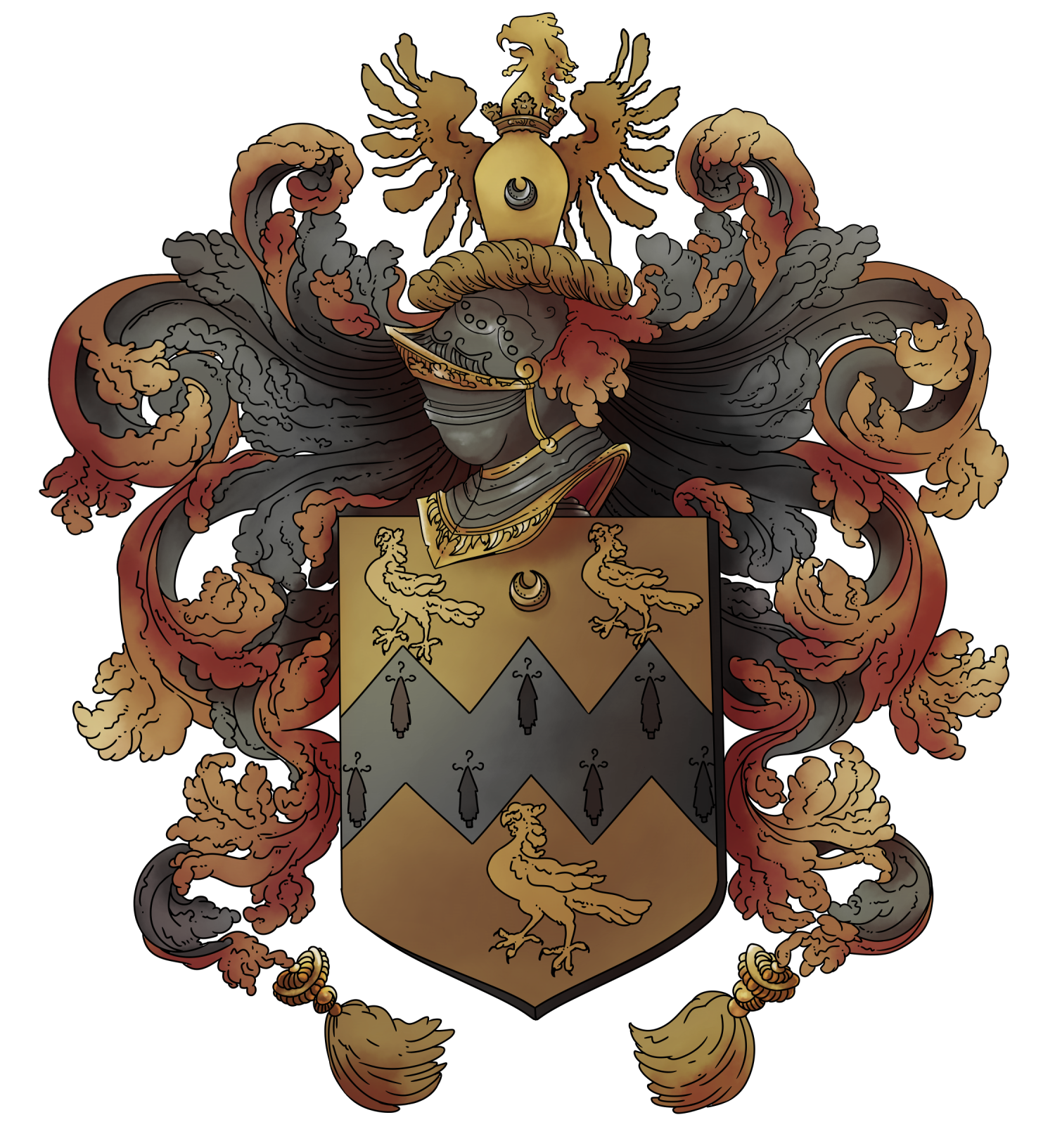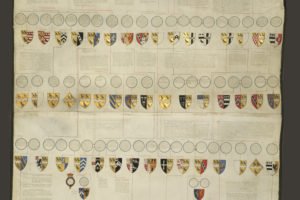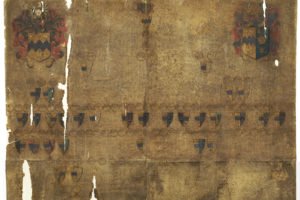For teenagers in the mid-to-late 1960s, the main band to groove to at local rock ’n’ roll dances proved to be the versatile quartet known as The Moles.
The Top-40 cover band, originally comprised of guitarists Billy James and Mike Laine, keyboardist John Louis Perner and drummer Steve Quarles, began rocking in 1964, outplayed the Allman Brothers in a battle of the bands contest, recorded four albums and kept the beat going for 12 years until calling it quits in 1976.
“They were just local legends. They were all from Lebanon. Everybody knew them, and they played everywhere,” said Lebanon City Councilor Tick Bryan. “I remember them because my mother used to get her hair done at Coiffures by Don, and one of The Moles’ girlfriends worked there, and they had their album for sale there.”
Back in the day, teen dances clicked at such venues as the McClain and Highland Heights school gyms, the National Guard Armory, Horn Springs resort, the American Legion club and Mt. Juliet’s Teen Town.
“I remember the first place we played any music was at the Lebanon Skating Rink, and it was so loud from noise of skates you couldn’t hear what we were playing as the skaters went round and round,” said Moles lead singer James, who also played lead guitar and performed on the flute, violin and alto sax.
“Our first paying gig was at the V.F.W. We only knew five or six songs, and we played them over and over for three hours. They passed the hat around and we got $6, but we didn’t care.”
The Moles remained a quartet for most of its 12-year run with other members including Townley Johnson, Charles Rittenberry and siblings Joe and Harry James Austin.
Coming together
When the British invasion, led by the Beatles, hit the States in 1964, countless American boys reached for their first guitars. Among them were Laine, James and Perner, neighbors who had been paperboys, throwing the morning Tennessean and afternoon Nashville Banner.
“Billy and I were practicing and stared getting better,” Laine said. “Then Louis started practicing, and the next thing you know Steve had a set of drums and was working with us.
“I played trombone in high school band and got into the guitar later,” Perner said. “I learned to play the organ and keyboard. I had a little bit of natural talent at the beginning but got way over my head fast due to the way I learned on the run and was playing blues and jazz.”
“Billy was talented as a vocalist. They compared his voice to Gary Puckett of Union Gap and to B.J. Thomas. We just kinda grew together.”
Filling out the quartet was youngest member Quarles, who had just transferred to Lebanon High from Castle Heights Military Academy.
“I owned a red Slingerland drum kit because my parents were kind enough to buy it for me so I could enjoy jamming with other students in the Castle Heights study hall when time permitted,” Quarles said.
“The others that I jammed with happened to be Gregg and Duane Allman and Michael Johnstone. They left Castle Heights about the same time that I left. I think Billy, Louis and Mike came by my house one evening and said they were looking for a drummer with a drum kit. I happened to own a drum kit, so that was my opportunity to join the group.
“We practiced primarily at my house in my parents’ converted garage and sometimes at Billy James’ house.”
Battle of the bands
Long hours of practice paid off, and soon the four were playing local dances and worked their way into Nashville and other Middle Tennessee clubs such as the Briar Patch, the Safari, the Red Baron and the Black Poodle and the Rainbow Room in Printers Alley.
Of course, other local bands also were springing up such as The Valiants and The Summits and Mt. Juliet’s The Visions and The Victors.
“The Valiants were our main competition. They had cousins Gary and Jerry Gillespie, Jim Ladas and Donnie Scarlett. We took turns at teen dances,” Quarles said.
As for their name, The Moles, Perner’s sister Barbara came up with the moniker.
“It was something to do with underground music … king of the underground,” Laine said. “We tried to change the name later (to the Band Wagon), but people wouldn’t let us.”
The Moles won a Wilson County band contest in late 1964 and then began playing at the popular Hippodrome skating rink in Nashville, which held a Music City battle of the bands contest that the Moles captured.
Another Nashville battle of the bands was held in 1966 at Municipal Auditorium, and, Laine said, “We entered and won that contest. The Allman Brothers (then called the Allman Joys) came in second, I think.”
First drummer exits
After two years of drumming with The Moles, Quarles departed the group. In retrospect, he said it was a good decision and that the band also benefitted from his friendly exit.
“My parents were not happy with me playing music at locations that served beer, and it was taking a toll on my grades in school so in the summer of 1966 they sent me on a trip to Europe, and that caused The Moles to look for another drummer. They found Harry (Jimmy) Austin, and to be perfectly honest, he was a much better drummer than I ever dreamed to be,” Quarles recalled.
Laine remembered that Jimmy was proficient on the snare drum but had never used a drum kit.
“We went over to Donny Scarlett’s house, and James tried to play on his drum kit but couldn’t do it. The next day, he called me and told me, ‘I’ve dreamed about it all night, I think I can play them things now.’ We went back over at Donny Scarlett’s house and he played them,” Laine said.
James recollected that The Moles sought guidance from Bill Fennell, who was helping manage the Allman Joys in the mid-’60s. Fennell attempted to steer The Moles toward blues music, but other than James, the rest preferred rock.
The band kept playing and practicing, getting tighter and tighter, until they realized it was time to make a move.
Gone to Florida
James, Laine and Austin held day jobs at Texas Boot Factory but after hearing from Duane and Gregg Allman, who told them about the regular gig they had in Daytona Beach, they packed their instruments and sound equipment into a homemade trailer, hitched it to Harry’s 1956 Chevy and made tracks for the Florida coast.
The addition of Harry on drums bumped up the quality of The Moles, but what truly set them apart from other bands was their instrumental versatility.
“The sound was gradually changing and growing. We got better at harmony, better at lead playing as we went along,” Laine said. “It seemed that Harry moved in great big steps in a short period of time. We were working in Daytona, and it seemed like B.J. Thomas heard us playing and he wanted to sit in with us and sing. His drummer came with him. Harry talked to him and he showed him some things and Harry came back like a new drummer again.
“Later we got Harry’s brother Joe to join up, and they both played drums, keyboards and trumpets. You could be watching a band that played stringed instruments and pick up trumpets and organ, and we had a little horn section going. Louis had played trombone in the band at school; so we bought two trumpets and went over couple of songs, playing intros. I could hit notes on that thing right away, so we were playing trumpets right away on that night on four tunes. That helped us and gave us a little different sound over four-piece electric bands,” Laine said.
In Florida, The Moles had landed a summer-long run at the Martinique nightclub in Daytona Beach. The owner offered them a sweet deal that paid off with serendipitous national publicity.
“I’ve got three parties this summer,” the club owner told the band. “If you will play music for these parties, I will fix you up with rooms for free.”
That first “party” turned out to be a performance for the London Philharmonic Orchestra.
“The Daytona newspaper got some pictures of it, and the headline said, ‘Band rocks the London Philharmonic,’” Laine recalled. “They put a big picture on the front page of the newspaper. Then we got word back that they put that photo in The Tennessean and The Banner. They told us it hit the national wire. Next thing you know, the Allman Brothers got a deal with One Nighters in Nashville and told us come on up here, and they began booking us all over the place.”
The Moles wound up rocking ’n’ rolling in such cities as New Orleans, Reno, Vegas, New York City, St. Louis, Miami, Jacksonville, Dallas and a three-month gig in Honolulu.
Keyboard player Perner stuck with The Moles until about 1970 after he had married and had a baby. Taking his place was gifted musician Townley Johnson, who taught his band mates how to read and write music and sight read.
The group had a regional hit in Florida with the song “Mystic Band” and eventually recorded four albums: “The Moles,” “Assassins of Youth,” “Helping White Girls Be Naughty” and “A Bite Out of Time.”
Two Austins are better than one
When Townley Johnson left The Moles in 1972, Harry Austin’s younger brother Joe came aboard.
Joe recalled, “Harry called me and said, ‘You want to join up? You’ll have to get a keyboard and learn keyboard’ because we were both drummers and played the trumpet too. We got us a Hammond organ and we had a couple of sets on the stage with two drummers. As the years rolled, we got more proficient with the keyboard, just swapping up, doing three or four sets a night. Me and my brother would just swap back and forth from drums and keyboards.”
James said the sibling addition really had The Moles sounding better than ever.
“The Austin brothers, both played keyboard and drums, and Harry, in my opinion, was one of the best drummers in America, absolutely superb. He had double drums. We had tympanis on stage. They both played bongos and congas. Everybody doubled on horns: Harry on trumpet, Joe on flugelhorn and keyboard, Mike played trumpet, and I had a sax mounted on the stand.”
The nightclub act employed other friends from Lebanon to handle sound and lighting, including Billy’s brother Ray “Demo” James, James Earl Keel, Ronny Birdwell and Tommy “Lightning” Knight of Watertown.
“For a while, we were jamming a lot of Allman Brothers material like our rendition of ‘Whipping Post.’ We did Lynyrd Skynyrd and Dr. Hook stuff like ‘Cover of the Rolling Stone.’ We did a lot of Crosby, Stills and Nash. They were fun times. I’d like to do it all over again,” James said.
Beginning of the end
In 1976, The Moles reached the end of their musical odyssey. Three factors led to the band’s demise: the rise of discotheques (a club with elaborate lighting and décor and dancing to recorded music), a motorcycle crash and venturing into the recording business.
“It was my fault really,” James volunteered. “I got back in school and set up a corporation in Tampa and built a recording studio, and I couldn’t play every night. I think about it every now and then and wish I had gone the other direction. We were playing in the same spot all those years. You feel like you’re not growing.”
Laine counters saying the end began in the mid-1970s “when the disco scene started happening. Every town always had one big room that had road bands. Then the scene stared changing and they turned into discotheques. That took a lot out of traveling bands.
“We were used to making good money but couldn’t make that kind of money competing with discotheques. Setting up and tearing down takes a lot of time. We had three roadies and four people on stage.”
But what Laine truly believes broke up The Moles was their failure to show at the Florida Jam, a concert that headlined Santana, Chicago, and Blood, Sweat and Tears.
“I had a brand new motorcycle, and a guy pulled in front of me. I was doing 40 and didn’t have time to hit the brakes. At 11 in the morning I was lying in the avenue knocked out with a broken right arm and left collarbone, and we didn’t get to play that night. We never seemed to have the magic we had before.”
Where they are now
Steve Quarles, 65, graduated from LHS in 1967 and has been involved in automotive manufacturing most of his life. A resident of Murfreesboro, he is an engineering manager for a company that makes body parts for Mercedes.
Quarles noted that he gave up the music business years ago, but, “I have a 19-year-old son, Ryan, who is an absolute master guitar player, studying at Belmont and writing music. He wants to be a rock star. He formerly played with Gravity Patrol in such Nashville clubs as The End and 12th and Porter and is pulling together a new band at Belmont.”
John Louis Perner, 69, graduated from Lebanon High in 1962 and Cumberland College in 1965 and lives in Lakeland, Fla. He ran a number of small businesses over the decades such as pet stores and hobby shops. He has kept his hand in music and occasionally sits in on piano with country bands.
“I’m still trying to write a hit song. It’s a continuing thing,” he said. “Now I’m playing mandolin and dulcimer music, playing old hymns and spirituals at coffeehouses.”
Billy James, 66, graduated from Lebanon High in 1965 and lives in Smyrna, Ga., where he operates a tax consulting business and serves as administrator for the Smyrna-Vining Moose Lodge where he plays on weekends.
“I do a Saturday evening mix of everything from Sinatra to the Beatles to country-western, new and old stuff,” he said.
Mike Laine, 67, who graduated from LHS in 1964, lives in Lakeland, Fla., said, “I been playing music all my life. I had a band called TNT (Tampa Night Train) from 1976 to 1986.
“I do a one-man band thing and play at an American Legion club in Lakeland every Monday from 2 to 5 p.m. for seniors. I play every Thursday from 10 a.m. to noon. I don’t like playing late night bars anymore where they’re drinking, but I like playing for seniors and especially dances. I also play a couple of places doing ballroom dances once a month,” said Laine, who wistfully recalled of The Moles, “We were like brothers. We used to fight and argue and next day everything was OK.”
Joe Austin, 62, who graduated from Lebanon High in 1969, lives in the Tampa Bay area. After The Moles, he and brother Harry and Ronny Birdwell and a couple of other musicians started the Sunflower Band, which later became Quatrain, and performed across Florida.
Harry later worked for the Majik Market chain in management, then settled in Pensacola, Fla., where he became an auditor for the county. He died in 2003 at the age of 56.
“After Harry quit, I still had the spitfire to play,” said Joe, who performed in the Hi-5 Band for about 20 years and retired from performing 10 years ago. Making his living in real estate, he also composes songs.
“I write gospel music now and lead singing in the church. I’d rather people know that I gave my life over to Christ, and I’m trying to live that way now and want my music to go that way,” Austin said.
Lebanon High class of 1966 grad James Earl Keel spoke to the uniqueness of The Moles’ sound saying, “I think more than anything it was their versatility with playing different instruments at the same time. Billy James was lead guitar and also played flute. Bass player Mike Laine could play trumpet and synthesizer. Both of the Austin boys Jimmy and Joe played keyboards, drums, trumpet and percussion.
“They probably worked more on their vocals than their music. Their four-part harmony was just unbelievable. They were all good lead singers and all good backup singers.”
Keel worked the lights for the band from 1974 until they dissolved 1976. He then became road manager for the Southern rock band Beaverteeth for two years.
With the 50th birthday of The Moles rolling around in 2014, Keel is strongly of the opinion that the surviving members still have the wherewithal to pull off a reunion show for old time’s sake.
“Oh, yeah, no doubt,” Keel said. “If they would rehearse for two or three days, I don’t think they would miss a beat.”
Writer Ken Beck may be contacted at kbtag2@gmail.com.





Leave a Reply
Your email is safe with us.